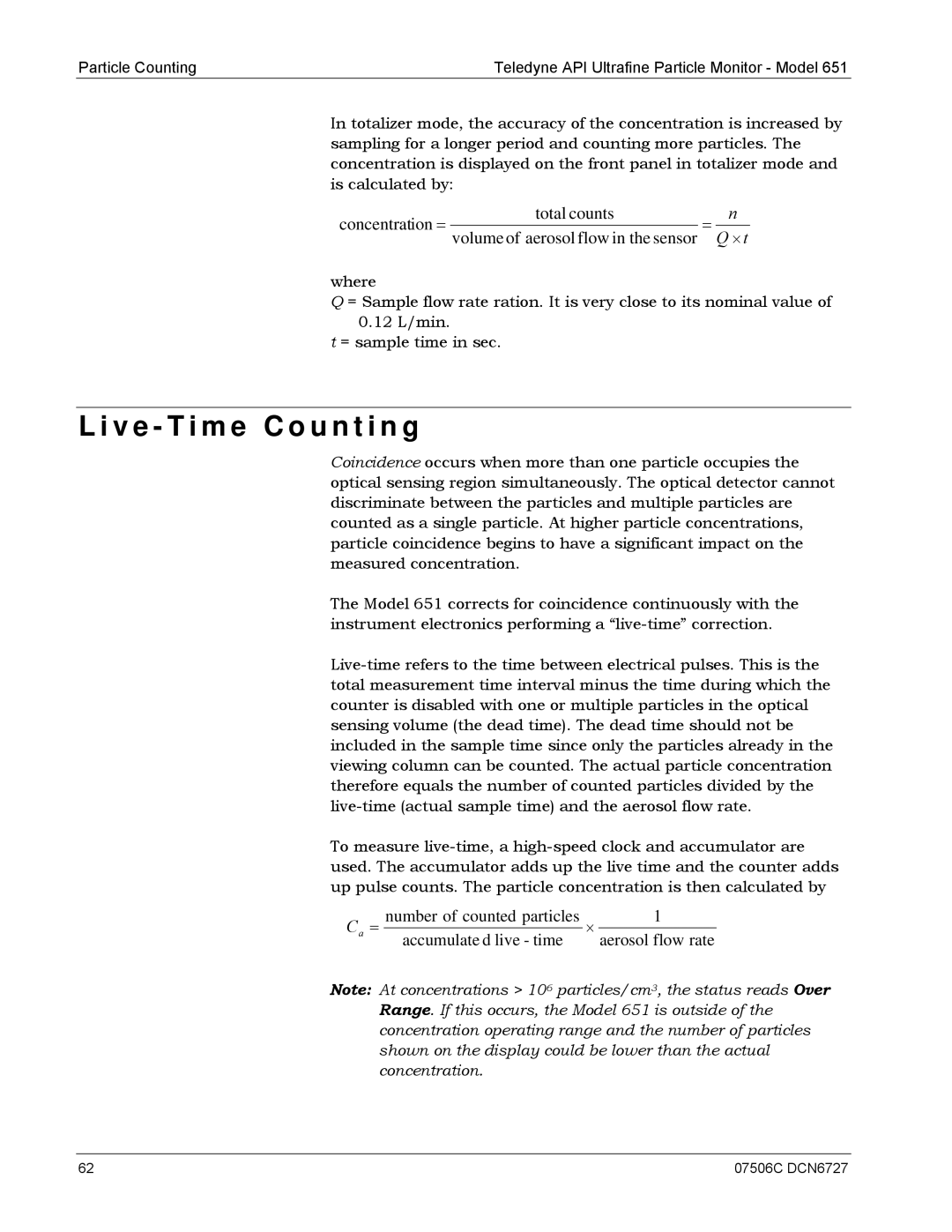
Particle Counting | Teledyne API Ultrafine Particle Monitor - Model 651 |
In totalizer mode, the accuracy of the concentration is increased by sampling for a longer period and counting more particles. The concentration is displayed on the front panel in totalizer mode and is calculated by:
concentration = | total counts | = | n | |
volume of aerosol flow in the sensor | Q × t | |||
|
|
where
Q = Sample flow rate ration. It is very close to its nominal value of 0.12 L/min.
t = sample time in sec.
L i v e - T i m e C o u n t i n g
Coincidence occurs when more than one particle occupies the optical sensing region simultaneously. The optical detector cannot discriminate between the particles and multiple particles are counted as a single particle. At higher particle concentrations, particle coincidence begins to have a significant impact on the measured concentration.
The Model 651 corrects for coincidence continuously with the instrument electronics performing a
To measure
Ca | = number of counted particles | × | 1 |
| accumulate d live - time |
| aerosol flow rate |
Note: At concentrations > 106 particles/cm3, the status reads Over Range. If this occurs, the Model 651 is outside of the concentration operating range and the number of particles shown on the display could be lower than the actual concentration.
62 | 07506C DCN6727 |
